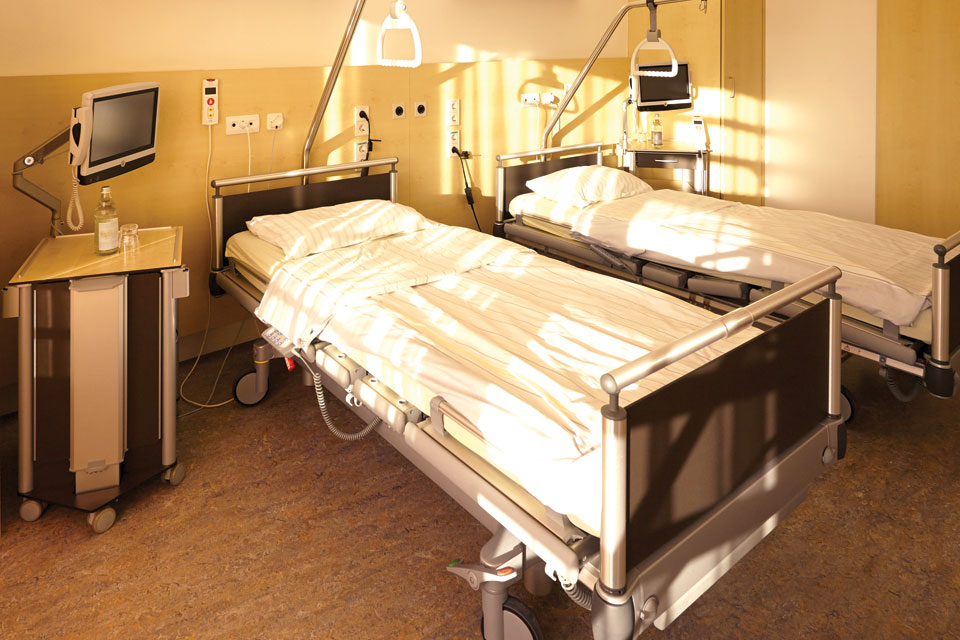
You don’t need to go far to be reminded about the not so gradual disintegration of our previously “normal” way of life. Pick up the remote and listen to hours of reporting about the war in Ukraine, the war in our streets and in our schools, the absolute embarrassment surrounding immigration at the Southern Border, the tanking of the stock markets, unfettered inflation, rampant diseases, and on and on.
Most of these cancers on our society don’t affect most of us instantly. We may fear paying $6 for a gallon of gas but, unless you are unfortunate enough to live in California, you don’t have to experience that burden today or tomorrow. But there are some dire transitions occurring in our society that affect our every day lives but aren’t impactful enough to garner the attention of FOX News. Our family has recently come face to face with a previously revered institution in our every day lives that, from our experience, has been fatally ruptured. I am speaking of the health care industry.
All of the anecdotes mentioned below are true but we have chosen not to identify the people or medical providers involved because there may have been extenuating circumstances involved in the situations about which we were unaware. Also, please bear in mind that for every glitch in performance there are undoubtedly hundreds of successes. None the less, our experiences are real and are continuing.
After a family member suffered a debilitating injury there was need to transport them to various venues, including doctors’ offices. On one such occasion shortly after the accident, our transport driver, who at best drove erratically, quit her job upon arrival at the parking lot for the doctor’s office. Try arranging for alternate medical transportation in a steamy parking lot.
Returning our patient to the hospital, they were placed back in a two-patient “suite” where the inmates are separated by a thin curtain. Unfortunately, our elderly Caribbean neighbor constantly conversed with her family and friends on her cell phone, using the speaker feature so everyone could hear, and she spoke forcefully because of her age. No sleeping or even relaxing in those quarters.


Of course, with no valet parking to speak of these days, visiting one’s loved ones in a hospital is nearly as daunting as running a marathon. The surface parking lots are huge and, once the hospital building is approached, there are miles of hallways yet to traverse. Additional care is recommended for visitors who arrive alive at their patient destinations.
A short-lived break in hospital stays (more to come) gave rise to being introduced to one of the many rehab facilities in our area. Most of the physical facilities are very nice and well maintained, but the love story stops there. Upon arrival, our team was met by a short, stocky head nurse who undoubtedly was trained by Putin. She stripped us of all medications without explanation and basically read us the riot act about what to expect during our stay. Her performance was underscored by a co-worker who later refused to help the patient, telling them that she was not there to serve them and they had to learn to take care of themselves. After surviving this drubbing, we opted to change floors, and personnel, and landed in much more serene surroundings. Not so fast! Move forward to the male patient on the floor who constantly came into our private room searching for something and later returned without bothering to have his bed clothes accompany him. Inexplicably, staff demurred that they had no authority to stop this or any other patient apparently suffering from dementia from walking wherever he or she desired.
So the journey continued to a second hospital, a private room, and a more concerned staff of care givers. Of course, there was the day when the facility had no water because of plumbing repairs that were necessary and, lest we forget, the night when a fire in the kitchen was discovered only because our patient inquired about a cup of tea. At that point, they needed something much stronger. The food was underwhelming, the noise overwhelming, and the cost prohibitive. But by comparison to our previous experience, that was acceptable.

When the stay was concluded with the doctors’ approvals, we were off to our home and, of course, home health care since our patient could not walk or even stand on their feet for several weeks. There are many home health care services in South Florida but the quality of the staffs, their availability, and the daily rates for nurses and aides vary greatly. Criticisms include failure to arrive before the departing care giver leaves for the day, language barriers to the point where conversations were purposely avoided, training voids where staff aren’t taught to change normal medical devices when required, and sleeping through the night rather than being available to the patient.
And let’s not let Medicare contractors off the hook. Upon discharge from the hospital, the surgeon prescribed some heavy-duty antibiotics administered by an I.V. Since our patient was going home, the hospital arranged for a Medicare contractor to come by the house every day for five days and, most importantly, do so at approximately the same time each day. The first day was fine, around 1:30 pm. The second day not so good, 9:00 pm after several calls to the contractor’s office only to learn that the nurse for the I.V. was at a sports event in Miami. After the I.V. was finished we received a phone call asking if the next I.V. could be administered at 9 am the next morning. So much for “at the same time each day.”
Another favorite story, but certainly not an isolated case, was when an aide who was unaware of any language other than her own, demonstrated her skill level by not understanding how to drain a catheter, spilled a portion of its contents on the floor, then entered the bathroom to dispose of the remaining contents of the container only to have her failing eyesight neglect to observe a glass shower door which she fell through to enter the shower presumably to store the empty container.
So, that is just a part of our tale but one we believe is representative of what others have and will experience when they enter the current state of our health care system. We would be less than fair if we did not recognize that a huge part of this and similar problems in other industries lies in the absence of qualified personnel at all levels. Until this void is filled, the results will remain as we experienced. Unfortunately, the health care field is enormous and it will take years to resuscitate it once personnel are trained and filtered back into the system.

